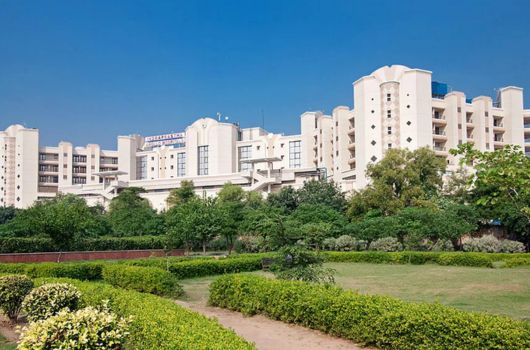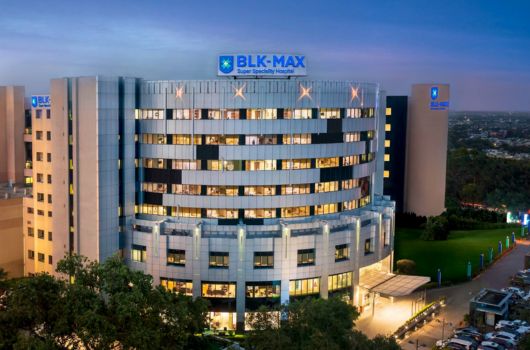Fatty Liver Grade 2 Causes, Treatment, and Prevention for Bangladeshi Patients

Fatty liver disease is a growing concern worldwide, and for Bangladeshi patients, understanding its stages is crucial for better management. Grade 2 fatty liver is a moderate stage where fat accumulation in the liver has increased, posing a higher risk of inflammation and liver damage.
Timely intervention through lifestyle adjustments and medical treatment can prevent the condition from progressing to more severe stages.
This guide explains what Grade 2 fatty liver is, its causes, symptoms, and effective treatment options while highlighting how the leading hospitals worldwide and Bangla Health Connect can support Bangladeshi patients seeking care.
What is Grade 2 Fatty Liver?
Grade 2 fatty liver is a moderate form of non-alcoholic fatty liver disease (NAFLD) where liver cells have accumulated a significant amount of fat.
At this stage, the liver may begin showing signs of inflammation, increasing the risk of fibrosis or cirrhosis if untreated. In advanced cases, prolonged fatty liver can increase the risk of developing liver cancer, making timely treatment essential. To understand other common liver conditions and their care options, see our detailed guide on liver disease treatment.
Key points about Grade 2 fatty liver:
- Moderate Condition: Fat accumulation has progressed beyond Grade 1 but has not yet caused irreversible damage.
- Proactive Treatment Required: Without timely intervention, Grade 2 fatty liver may worsen and lead to serious liver complications.
- Mild to Noticeable Symptoms: While some patients remain asymptomatic, others may begin experiencing signs of liver stress.
Causes and Risk Factors of Grade 2 Fatty Liver
Several factors can contribute to the progression of fatty liver to Grade 2:
- Chronic Obesity: Excess body weight, particularly abdominal fat, significantly increases the risk of developing Grade 2 fatty liver.
- High Cholesterol and Triglycerides: Elevated fat levels in the blood increase the likelihood of liver fat buildup. Since these issues often occur alongside hypertension, maintaining healthy blood pressure levels is equally important for protecting liver health. Managing cholesterol and triglycerides through proper treatment is therefore an important step in preventing fatty liver from worsening.
- Uncontrolled Diabetes and Insulin Resistance: Poor blood sugar control accelerates fat accumulation in the liver. Patients with diabetes should consider proper diabetes treatment to reduce the risk of fatty liver progression.
- Poor Dietary Habits: Diets high in processed foods, sugary beverages, and refined carbohydrates contribute to liver stress. Such dietary issues can also lead to related conditions like gallbladder stones, which often occur alongside fatty liver.
- Sedentary Lifestyle: Lack of regular physical activity slows metabolism, promoting fat storage in the liver. You can explore our guide on the best exercises for weight loss and triglyceride control, which directly support fatty liver improvement.
Many of these risk factors first appear in Grade 1 fatty liver, which can often be reversed with timely care.
Symptoms of Grade 2 Fatty Liver
Unlike Grade 1, where symptoms are often absent, Grade 2 fatty liver may present with noticeable but still mild symptoms. Common signs include:
- Abdominal Discomfort: A dull or persistent pain in the upper right side of the abdomen.
- Fatigue and Weakness: Feeling tired despite adequate rest may indicate liver stress.
- Bloating and Digestive Issues: Symptoms like indigestion, loss of appetite, or gas may develop as the liver struggles to function efficiently.
Because symptoms can still be mild, routine screening is essential for early detection and intervention.
.png)
.png)
Diagnosis of Grade 2 Fatty Liver
Accurate diagnosis is crucial for developing an effective treatment plan. Common diagnostic methods include:
- Liver Function Tests (LFTs): Blood tests that assess enzyme levels to detect liver inflammation. Elevated liver enzymes may indicate ongoing damage, making this an important first step.
- FibroScan: A specialised ultrasound that measures liver stiffness and fat content. It provides a clear assessment of fat buildup and early signs of fibrosis, making it a valuable tool for tracking disease progression.
- CT Scans and MRI Imaging: These advanced imaging techniques provide detailed visuals of the liver’s structure, identifying fat accumulation and potential scarring in more complex cases.
- Blood Sugar and Lipid Profile Tests: Since fatty liver is closely linked to metabolic conditions, these tests help assess overall risk and guide personalised treatment plans.
- Abdominal Ultrasound with Doppler Study: This specialised test evaluates blood flow to and within the liver, helping assess the risk of developing fibrosis or related complications.
Treatment Options for Grade 2 Fatty Liver
Managing Grade 2 fatty liver requires a combination of lifestyle changes and medical intervention. Key treatment strategies include:
- Dietary Changes: Focus on a low-carb, high-fibre diet with an emphasis on whole grains, fruits, and vegetables. Reducing sugary and processed foods is essential.
- Exercise and Physical Activity: Regular aerobic exercise, strength training, or brisk walking for 30-45 minutes most days of the week is recommended.
- Weight Management: Losing 7-10% of body weight can significantly improve liver function.
- Medications: Doctors may prescribe medications such as vitamin E, metformin, or statins to manage inflammation, blood sugar, or cholesterol levels as needed. Since vitamins play a role in liver recovery, patients may also benefit from proper vitamin deficiency treatment to support overall liver health.
- Medical Monitoring: Regular check-ups and liver assessments ensure that lifestyle changes are working effectively.
Delaying treatment increases the chances of advancing to Grade 3 fatty liver, which requires urgent care. In advanced cases, doctors may recommend a liver transplant at specialised hospitals to restore liver function.
Prevention and Management Strategies
To manage and prevent the progression of Grade 2 fatty liver, patients should:
- Follow a Balanced Diet: Prioritise lean proteins, healthy fats, and whole grains while avoiding sugary drinks and high-fat foods.
- Exercise Consistently: Incorporate aerobic workouts, resistance training, or walking into your daily routine.
- Monitor Blood Sugar and Cholesterol Levels: Regular testing can help manage associated risks.
- Avoid Excessive Alcohol Consumption: Alcohol can accelerate liver damage, particularly in patients with fatty liver.
- Routine Health Screenings: Regular check-ups allow for early intervention if symptoms worsen.
When to Consult a Doctor and Potential Complications
Patients should seek medical attention if they experience:
- Persistent Abdominal Pain or bloating that worsens over time.
- Unexplained Fatigue despite adequate rest, as this can indicate liver stress.
- Worsening Digestive Issues such as frequent nausea, indigestion, or noticeable changes in appetite.
- Yellowing of the Skin or Eyes (Jaundice) - a potential sign of advancing liver damage.
- Dark Urine or Pale Stools may indicate impaired liver function.
Studies have also shown that patients with fatty liver disease face a significantly higher risk of heart disease, with NAFLD making them up to 3.5 times more likely to develop heart failure. This makes early consultation even more important to protect both liver and heart health.
Hospitals for Fatty Liver Grade 2 Treatment for Bangladeshi Patients
If you have been diagnosed with Grade 2 Fatty Liver, consultation with a gastroenterologist or hepatologist is recommended. The hospitals below provide liver diagnostics and metabolic liver disease management.

Apollo Chennai, Greams Road

Apollo Hospital Delhi

BLK-Max Super Speciality Hospital, New Delhi
.png)
Samitivej Chonburi Hospital
.png)
Why Choose Trusted Hospitals Worldwide for Grade 2 Fatty Liver Treatment?
Through Bangla Health Connect, Bangladeshi patients can access trusted hospitals across India, Thailand, and other countries recognised globally for their excellence in diagnosing and managing Grade 2 fatty liver disease.
Many families travel abroad for treatment because these international hospitals combine advanced diagnostics, expert liver care, and comprehensive recovery programmes for effective and lasting results.
Here’s why Bangladeshi patients choose Grade 2 fatty liver treatment through Bangla Health Connect’s hospitals abroad offering advanced liver care.:
- Advanced Diagnostic Technology
Hospitals use cutting-edge tools such as FibroScan, CT scans, and Liver Function Tests (LFTs) to accurately assess fat buildup, liver stiffness, and inflammation, ensuring a clear picture of liver health. - Experienced Liver Specialists
Renowned hepatologists and liver care teams provide personalised treatment for Grade 2 fatty liver. Their expertise helps manage symptoms through diet modification, exercise planning, and targeted medical therapy. - Comprehensive Treatment Programmes
Leading hospitals across India, and Thailand, and other countries combine nutrition counselling, physical activity guidance, and medical support to help patients reduce liver fat and restore normal function safely and effectively. - Affordable Treatment Abroad
Hospitals in India, Thailand, and other countries offer world-class fatty liver treatment at affordable rates, making advanced care accessible for Bangladeshi families without compromising quality. - Fast Access and Monitoring
Patients benefit from quick diagnostic appointments, timely consultations, and continuous progress tracking to ensure a smooth recovery journey. - Language and Support
International hospitals have English-speaking doctors, while Bangla Health Connect provides Bengali-speaking coordinators who assist patients through every step from consultation to post-treatment care.
Bangla Health Connect offers Bangladeshi patients a trusted pathway to accurate diagnosis, effective management, and expert global care for Grade 2 fatty liver disease.
How Bangla Health Connect Assists Patients
Bangla Health Connect understands the challenges Bangladeshi patients face when seeking treatment for Grade 2 fatty liver. With dedicated services, the process becomes smooth and stress-free.
- Medical visa assistance
We help with the documentation process, including the Medical Visa Invitation Letter, which would help to speed up the approval process.
- Faster appointments with top hepatologists
Through our Doctor Appointment Service, you get quick access to experienced liver specialists for early diagnosis and treatment.
- Airport Pickup Service
Our team arranges a free airport pickup, so you can reach your hotel or hospital safely after landing.
Treatment for Grade 2 fatty liver in trusted hospitals worldwide offers high-quality care with experienced specialists, advanced technology, and well-equipped hospitals, making it a reliable option for Bangladeshi patients. Hospitals ensure comprehensive treatment plans to help manage fatty liver effectively and restore liver health.
Bangla Health Connect simplifies your medical journey by assisting with visas, travel arrangements, doctor appointments, and post-treatment care. Take the first step toward better liver health - connect with Bangla Health Connect today for a smooth and well-coordinated fatty liver treatment experience.
Note: Bangla Health Connect does not provide medical advice of any kind.
.png)
FAQs
Can Grade 2 fatty liver be reversed with lifestyle changes?
Yes, with consistent lifestyle changes, improved diet, and exercise, many patients with Grade 2 fatty liver can achieve improved liver health.
What medications are effective for Grade 2 fatty liver?
Doctors may recommend medications like vitamin E, metformin, or statins to manage inflammation, blood sugar, or cholesterol. However, it is always better to consult a doctor to receive the right diagnosis and treatment plan based on your condition.
How long does it take to recover from Grade 2 fatty liver?
Recovery timelines vary, but with consistent lifestyle changes, most patients see improvements within 6 to 12 months. You should consult your physician to ensure the plan aligns with your specific health needs.












.png)
.png)
.png)